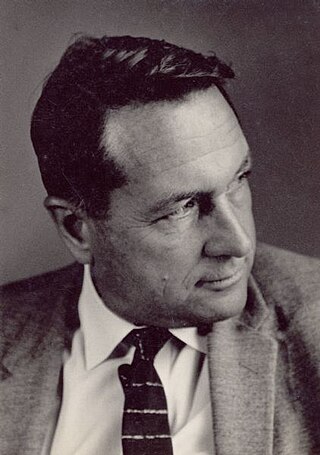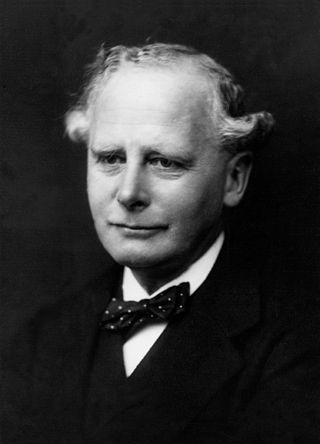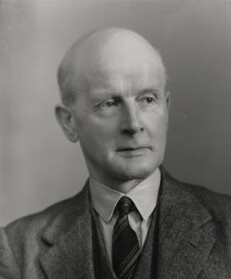Related Research Articles

The Highlander Research and Education Center, formerly known as the Highlander Folk School, is a social justice leadership training school and cultural center in New Market, Tennessee. Founded in 1932 by activist Myles Horton, educator Don West, and Methodist minister James A. Dombrowski, it was originally located in the community of Summerfield in Grundy County, Tennessee, between Monteagle and Tracy City. It was featured in the 1937 short film, People of the Cumberland, and the 1985 documentary film, You Got to Move. Much of the history was documented in the book Or We'll All Hang Separately: The Highlander Idea by Thomas Bledsoe.

Carrie Katherine "Kate" Richards O'Hare was an American Socialist Party activist, editor, and orator best known for her controversial imprisonment during World War I.
Commonwealth College (1923–1940) was a college started to recruit and train people to take the lead in socio-economic reform and prepare them for unconventional roles in a new and different society. An outgrowth of Job Harriman's New Llano Cooperative Colony in Louisiana, in 1923, William Zeuch, James McDonald, Kate Richards O'Hare, and Frank P. O'Hare joined with New Llano to found the institute in 1923. In the 1930s Commonwealth was essentially oriented towards training organizers for the rapidly growing labor movement. Tensions within the cooperative community led to a split, and Zeuch and Kate Richards and Frank P. O'Hare moved to Mena, Arkansas in December 1924, where the institution re-opened the next year.
George Paul Landow was Professor of English and Art History Emeritus at Brown University. He was a leading authority on Victorian literature, art, and culture, as well as a pioneer in criticism and theory of Electronic literature, hypertext and hypermedia. He also pioneered the use of hypertext and the web in higher education.
The Rand School of Social Science was formed in 1906 in New York City by adherents of the Socialist Party of America. The school aimed to provide a broad education to workers, imparting a politicizing class-consciousness, and additionally served as a research bureau, a publisher, and the operator of a summer camp for socialist and trade union activists.

Morris Leopold Ernst was an American lawyer and prominent attorney for the American Civil Liberties Union (ACLU). In public life, he defended and asserted the rights of Americans to privacy and freedom from censorship, playing a significant role in challenging and overcoming the banning of certain works of literature and in asserting the right of media employees to organize labor unions. He also promoted an anti-communist stance within the ACLU itself, and was a member of the President's Committee on Civil Rights.

Work People's College was a radical labor college established in Smithville (Duluth), then a suburb of Duluth, Minnesota, in 1907 by the Finnish Socialist Federation of the Socialist Party of America. School administrators and faculty were sympathetic to the syndicalist left wing of the Finnish labor movement and the institution came into the orbit of the Industrial Workers of the World during the 1914-1915 factional battle that split the Finnish Federation. The school ceased operation in 1941.

Brookwood Labor College was a labor college located at 109 Cedar Road in Katonah, New York, United States. Founded as Brookwood School in 1919 and established as a college in 1921, it was the first residential labor college in the country. Its founding and longest-serving president was A. J. Muste. The school was supported by affiliate unions of the American Federation of Labor (AFL) until 1928.

Sir Michael Ernest Sadler was an English historian, educationalist and university administrator. He worked at Victoria University of Manchester and was the vice-chancellor of the University of Leeds. He was also a champion of the English public school system.
Lee Elhardt Hays was an American folk singer and songwriter, best known for singing bass with the Weavers. Throughout his life, he was concerned with overcoming racism, inequality, and violence in society. He wrote or cowrote "Lonesome Traveller", "Wasn't That a Time?", "If I Had a Hammer", and "Kisses Sweeter than Wine", which became hits and Weavers' staples. He also familiarized audiences with songs of the 1930s labor movement, such as "We Shall Not Be Moved".
The Plebs' League was a British educational and political organisation which originated around a Marxist way of thinking in 1908 and was active until 1926.

Sir Frederick Clarke was an English educationist who was Director of the Institute of Education in the University of London between 1936 and 1945.

Robert Williams Dunn (1895–1977) was an American political activist and economic researcher. Dunn was an active member of the American Civil Liberties Union from its creation, serving on that group's National Committee from 1923 and on its board of directors from 1933 to 1941. Dunn was the author of a number of books and pamphlets on economic themes relating to the working class published by the Communist Party USA.

Herbert Lionel Elvin was an educationist.
Clay Fulks (1880–1964) was a writer on Arkansas lore.
The New York Workers School, colloquially known as "Workers School", was an ideological training center of the Communist Party USA (CPUSA) established in New York City for adult education in October 1923. For more than two decades the facility played an important role in the teaching of party doctrine to the organization's functionaries, as well as offering a more general educational program to trade union activists.
The Jefferson School of Social Science was an adult education institution of the Communist Party USA located in New York City. The so-called "Jeff School" was launched in 1944 as a successor to the party's New York Workers School, albeit skewed more towards community outreach and education rather than the training of party functionaries and activists, as had been the primary mission of its predecessor. Peaking in size in 1947 and 1948 with an attendance of about 5,000, the Jefferson School was embroiled in controversy during the McCarthy period including a 1954 legal battle with the Subversive Activities Control Board over the school's refusal to register as a so-called "Communist-controlled organization."
The California Labor School was an educational organization in San Francisco from 1942 to 1957. Like the contemporary Jefferson School of Social Science and the New York Workers School, it represented the "transformed and upgraded" successors of the "workers schools" of the 1920s and 1930s.
The San Francisco Workers' School was an ideological training center of the Communist Party USA (CPUSA) established in San Francisco for adult education in 1934. "It was a typical specimen of a Communist school, such as would come under investigation by federal and state authorities for decades afterward.". in the 1940, it emerged as the California Labor School.
The Baltimore Labor College of Baltimore, Maryland, was an early 20th-century college, school, and enterprise for workers' education within the State of Maryland. Its president was Polish-born ILGWU organizer William Ross.
References
- 1 2 "William E. Zeuch - John Simon Guggenheim Memorial Foundation". www.gf.org. Archived from the original on 2013-05-07.
- 1 2 3 4 "Encyclopedia of Arkansas".
- 1 2 Cobb, William (2000). “Radical Education in the Rural South: Commonwealth College, 1922-1940”. Wayne State University Press. ISBN 0-8143-2773-7.
- ↑ https://www.gf.org/fellows/william-e-zeuch/
- ↑ The Star Progress, 24 Mar 1932, Page 2
- ↑ Radical Education in the Rural South: Commonwealth College, 1922-1940 By William H. Cobb, page 109
- 1 2 General Welfare Reporter, July 13, 1944, Page 2
- ↑ The Cheyenne Star, July 4, 1940, Page 2
- ↑ Clinton Daily News, July 8, 1940, Page 3
- ↑ The Baldwin Times, April 23, 1942, Page 1
- ↑ The Capital Times, Madison, Wisconsin, December 26, 1941, Page 8, https://www.newspapers.com/clip/123384360/zeuch-named-head-of-alabama-school/
- ↑ https://www.newspapers.com/clip/123373687/obituary-for-william-zeuch/